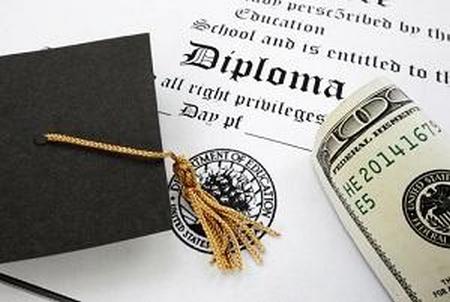Arlington Heights, IL 60005
What Are My Child’s Responsibilities Regarding College Expenses After an Illinois Divorce?
 Classes are now well underway at universities and colleges in Illinois and around the country. If you are the parent of a college-aged son or daughter, you have probably spent much of the last few years budgeting, saving, and preparing for the costs of putting your child through college. Under Illinois law, parents who are divorced may have increased responsibilities, as they could be court-ordered to contribute toward the college expenses of their child.
Classes are now well underway at universities and colleges in Illinois and around the country. If you are the parent of a college-aged son or daughter, you have probably spent much of the last few years budgeting, saving, and preparing for the costs of putting your child through college. Under Illinois law, parents who are divorced may have increased responsibilities, as they could be court-ordered to contribute toward the college expenses of their child.
If you are subject to an order for non-minor support for college expenses, you should realize that you are not the only one with obligations related to that order. Your child must assume certain responsibilities as well, or your ordered contributions will be terminated.
The Resources of the Child
According to the Illinois Marriage and Dissolution of Marriage Act, the court must consider many factors when deciding on whether to issue an order for a parent to help with the child college expense. These factors include the resources and needs of each parent, including their retirement savings. The same law, however, requires the court to take the child’s resources into account as well. The statute explicitly states that education savings accounts governed by Section 529 of the Internal Revenue Code—commonly known as “529 Accounts” are considered to be resources of the child, as long as they were established before the divorce. Other resources of the child may include endowments, grants, scholarships, and any other funds intended to help pay for post-secondary education.
The Age of the Child
You cannot be expected to continue paying for your child’s college forever. With this in mind, the law generally presumes that these types of support orders will be reserved for students who go to college, university, or trade school immediately after high school. Your obligation to contribute will end when your son or daughter turns 23 years old, though this can be extended to age 25 upon a showing of good cause.
Academic Performance
When deciding on whether to order non-minor support, the court must consider the child’s high school academic performance. If your son or daughter struggled to graduate because he or she showed little interest in school, the court is unlikely to order you to help pay for his or her college. Once the order has been issued, the child’s college academic performance becomes important. The court could terminate the order if your child fails to maintain at least a “C” average. Your obligation will also be terminated when your child successfully completes a bachelor degree program.
Personal Choices
Your college-aged son or daughter will be faced with many choices about his or her life, some of which could affect your obligation to continue providing support. By law, you can only be required to pay non-minor support for education expenses if your child is unmarried. If your child gets married, the court will no longer have the authority to order such payments. The court will maintain this authority, however, if your child gets pregnant, goes to jail, or joins the military, but each of these could obviously affect his or her academic performance.
A Rolling Meadows Child Support Lawyer Can Help
For more information about orders for non-minor support for education expenses in Illinois, contact an experienced Arlington Heights family law attorney. At Cosley Law Office, we help divorced parents protect their rights while looking after the best interests of their children. Call 847-253-3100 for a free consultation today.
Source:
http://www.ilga.gov/legislation/ilcs/ilcs5.asp?ActID=2086&ChapterID=59













